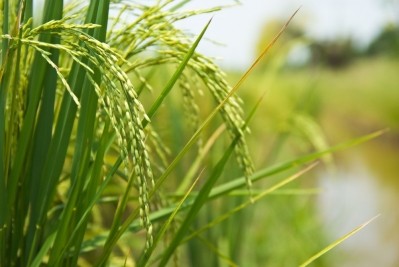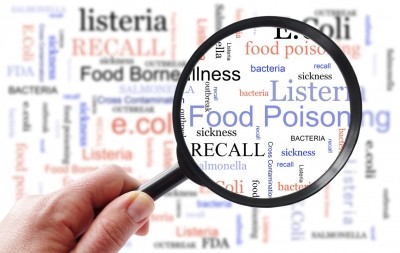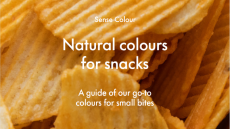Is titanium dioxide safe to eat? Fresh research raises concerns over E171

Titanium dioxide, colouring E171, is included on the list of permitted EU food additives and this week the European Food Safety Authority (EFSA) again issued an opinion that the common ingredient is safe for human consumption.
In 2016, EFSA said that available data on E171 in food showed absorption levels were “extremely low” and that its use as an additive “does not raise a genotoxic concern”. And while the UN’s International Agency for Research on Cancer (IARC) has classified titanium dioxide as a possible human carcinogen, EFSA stated that it is not carcinogenic after oral administration.
E171 is a colouring used in over 900 food products, from confectionery and baked goods to sauces such as mayonnaise. It is used to achieve a white, opaque or cloudy colour.
The food safety body reaffirmed this opinion first in 2018 and then again last week, stating that no new evidence has come to light to prompt a change of course.
Responding to a parliamentary question in February, Vytenis Andriukairis, European Commissioner for Health and Food Safety, stated: “The Commission considers that there are currently no grounds to apply precautionary measures regarding the authorisation of E171 as a food additive.”
Nevertheless, concerns over its safety persist and last month France announced plans to ban the additive in food products from January 2020. According to France’s health and safety agency (ANSES), a lack of evidence guaranteeing the safety of titanium dioxide informed the decision.
While EFSA rejected this conclusion, the agency did acknowledge that there are some “data gaps”.
“EFSA concludes that the ANSES opinion published in April 2019 does not identify any major new findings that would overrule the conclusions made in the previous two scientific opinions on the safety of titanium dioxide (E171) as a food additive
“The ANSES opinion reiterates the previously identified uncertainties and data gaps, which are currently being addressed in the context of the follow up activities originating from the previous EFSA evaluations and their recommendations.”
‘Not scientifically justified’
Responding to the development, a spokesperson for the Titanium Dioxide Manufacturers Association (TDMA) said that ANSES’s decision was not based on scientific evidence.
“The French measure is not scientifically justified,” the spokesperson told FoodNavigator.
The Association is currently working alongside the relevant safety authorities to examine the current body of scientific knowledge on the safety of E171 to “ensure the responsible use of our product”.
“We are currently undertaking a comprehensive science programme, in consultation with EFSA and ANSES, testing E171’s safety following questions raised by the Authorities. The programme will deliver results in accordance with the timelines agreed with the European Commission and EFSA.”
The TDMA stressed that France’s decision represents something of a threat to the single market regulatory framework. “We are concerned that if Member States can proceed with a suspension after EFSA has just reasserted the safety of E171, it raises questions about the EU harmonised regulatory framework,” the spokesperson warned.
‘Consumption should be better regulated’
Despite reassurances, safety concerns continue to shadow titanium dioxide.
In a recent letter to European Commission vice-president Jykri Katainen, more than 30 consumer organisations demand E171 be banned across the bloc.
“According to EU legislation, a food additive may only be authorised if its use is safe, technologically justified, and if it does not mislead, but on the contrary benefits, the consumer: E171 meets none of these conditions,” the letter stated.
And this week, a new study was published by researchers at the University of Sydney in response to what they described as “insufficient evidence about its safety”.
Published in Frontiers in Nutrition, the Australian mouse study suggested that E171 may have a “substantial and harmful influence on human health”. It found that consumption of food containing E171 has an impact on the gut microbiota, which could trigger diseases such as inflammatory bowel diseases and colorectal cancer.
"This study investigated effects of titanium dioxide on gut health in mice and found that titanium dioxide did not change the composition of gut microbiota, but instead it affected bacteria activity and promoted their growth in a form of undesired biofilm,” explained co-lead author Associate Professor Laurence Macia, who is an immunologist expert on the impacts of the gut and gut microbiota on health from the Faculty of Medicine and Health and the Charles Perkins Centre.
“Biofilms are bacteria that stick together and the formation of biofilm has been reported in diseases such as colorectal cancer.”
This is particularly important because the gut bacteria are a “gatekeeper of our health”, co-lead and nanotoxicology expert from the University of Sydney's School of Pharmacy and Sydney Nano Institute Associate Professor Wojciech Chrzanowski added.
"This study presents pivotal evidence that consumption of food containing food additive E171 affects gut microbiota as well as inflammation in the gut, which could lead to diseases such as inflammatory bowel diseases and colorectal cancer," he said.
Associate Professor Chrzanowski said he hoped the research would “stimulate discussions” on “new standards and regulations” to ensure the safe use of nanoparticles like titanium dioxide.
“We are saying that its consumption should be better regulated by food authorities,” Associate Professor Macia added.
Source
'Impact of the Food Additive Titanium Dioxide (E171) on Gut Microbiota-Host Interaction'
Frontiers in Nutrition
DOI: https://doi.org/10.3389/fnut.2019.00057
Authors: Wojciech Chrzanowski, Laurence Macia, et al
























